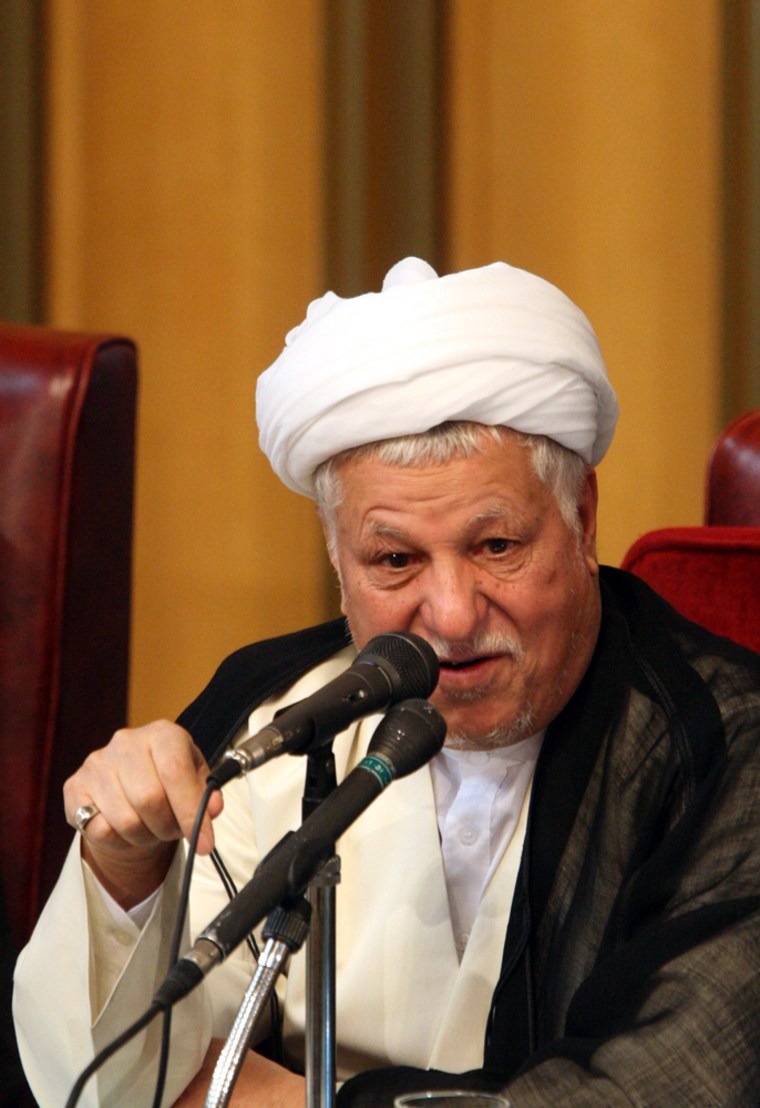Former Iranian President Hashemi Rafsanjani was picked Tuesday to head a key clerical body empowered with choosing or dismissing the country’s supreme leader — a vote seen as a victory for Iran’s moderate conservatives, state media reported.
Rafsanjani, long a major player in Iran’s complex political scene who already heads a powerful government body called the Expediency Council, received 41 votes to become head of the Assembly of Experts.
The assembly is a group of 86 senior clerics charged with monitoring Supreme Leader Ayatollah Ali Khamenei and choosing his successor. The Expediency Council mediates between Iran’s parliament and clerical hierarchy.
The 73-year-old former president is considered more moderate than current hard-line President Mahmoud Ahmadinejad. Rafsanjani defeated Ayatollah Ahmad Jannati, an extremist within the hard-line camp who received 30 votes for the Assembly of Experts leadership, state-run television reported.
While Jannati is among the proponents of the theory that the legitimacy of Iran’s clerics to rule the country is derived from God, Rafsanjani is believed to side with pro-democracy reformers who believe the government’s authority is derived from popular elections.
Rafsanjani’s election was considered by analysts as a defeat for hard-liners and a victory for moderate conservatives within Iran’s ruling Islamic establishment. It could also mean a challenge to Khamenei, who as supreme leader has final say on matters of state.
Analyst Saeed Leilaz noted that Rafsanjani has spoken lately of greater Assembly supervision over Khamenei. “The outside world must know that Rafsanjani’s election today is an important development in Iran,” he said.
Rafsanjani succeeds Ayatollah Ali Meshkini, who died in July after a long illness.
Opponent to Ahmadinejad
The former president, who served in that role from 1989-1997, is also considered an opponent to Ahmadinejad and lost to him the 2005 presidential runoff.
The Assembly of Experts is seen as a pillar of the regime because of its lofty duties: monitoring the all-powerful supreme leader and picking a successor after his death.
But the assembly has not published a single public report about its monitoring of Iran’s supreme leader in the past three decades.
Rafsanjani had hinted in the past that the assembly has to publish reports to respect the public and inform the nation of its activities.
“Now, the assembly is in a better shape to contain Khamenei,” said political analyst Hamid Reza Shokouhi.
The body’s real clout only kicks in after the supreme leader is gone — a sort of Iranian version of the Vatican’s College of Cardinals when they gather to pick a new pope.
The assembly has done that only once since the 1979 Islamic Revolution. In 1989, it picked Khamenei to succeed his late mentor, the Islamic Revolution patriarch Ayatollah Ruhollah Khomeini.
